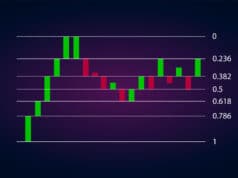In much of the language used by brokers when describing their offers to clients, they often mention a segregated account. Aside from regulation, this is also another point worth observing from a trader’s perspective.
Fund separation is an essential factor to consider and regulation to strengthen a broker’s security, trust, and capitalization in the forex industry.
Let’s look at precisely what a segregated account is, its significance, the dangers of using a broker without one, and some misunderstandings regarding the topic.
What is a segregated account from a forex broker?
Account segregation refers to brokers holding their customers’ deposited money separately from their segregation Inbank account or operational capital.
This segregation is aimed at brokers preceding any possibility to utilize their clients’ money aside from meeting their margin requirements or carrying out individual transactions specifically for the clients.
Even if the brokerage were to be overdrawn, they legally wouldn’t use client funds to rectify this issue. The account helps clear any confusion between their money and their traders’. It also allows clients to withdraw their funds within a reasonable period.
Under a properly regulatory environment, the main purpose of such an account is to prevent the broker from any financial malpractice, which offers traders peace of mind considering scam dealers do still exist. In the early days of forex trading, money deposited by traders would be held in the firm’s main account.
While this allowed seamless transference of money between the company and the client, policymakers saw a counterparty risk of financial misuse and other irregularities. Also, should the dealer face any solvency or even merger issues, they should still be able to compensate their traders’ deposits with a segregated account.
So, these are the main reasons why a broker with a separate account is essential.
Why do regulators insist on segregated accounts?
Far fewer fraudulent brokers exist now than a decade ago, but a few may still slip through the cracks, especially in regions where regulation is less strict or non-existent.
Before separate accounts became mandatory, unscrupulous brokers would engage in scammy practices such as withdrawal delays or refusing payments, price manipulation, and using their client’s money for their own operations.
With all these problems, forex regulation began making these accounts compulsory to mitigate these risks and encourage transparency. Most regulators enforce this requirement in many jurisdictions. For instance, the FCA (Financial Conduct Authority) – the UK forex watchdog – explicitly references account segregation under its Client Assets Sourcebook 5.5:
“One purpose of CASS 5.5 is to ensure that, unless otherwise permitted, client money is kept separate from the firm’s own money. Segregation, in the event of a firm’s failure, is important for the effective operation of the trust that is created to protect client money. The aim is to clarify the difference between client money and general creditors’ entitlements in the event of the firm’s failure.”
A regulatory agency like the FCA oversees a company’s dealings through periodic audit reports assessing its financial history. These watchdogs will also see an updated record of the firm’s segregated accounts to ensure they meet their operational requirements as planned.
Brokers are authorized to hold this account with so-called tier-1 banks in their respective regions for more robust security.
What are the risks of using a forex broker without a segregated account?
Brokers without such an account tend to be largely unregulated, which itself is the more significant issue. It is not uncommon for these companies to promote big bonus and reward programs, knowing well the clients’ money would be mixed with their own.
Inherently, this creates a conflict of interest that could affect the profitability of a trader. If a client requests a withdrawal after making some money, it might be tricky if the broker only has one account handling all their operating capital.
This account itself could be engaged in other ventures, not in any way connected with the customer. Hence, some brokers might delay or refuse withdrawals entirely. So, a forex dealer with no segregated option can use their traders’ money any way they desire, which can often have negative consequences.
Some misconceptions about segregated accounts from forex brokers
It is helpful for traders to find out about the regulation policies regarding segregated accounts for their particular broker. It is not just whether a broker has this account, but how much one could potentially recover, if anything at all, in the case of bankruptcy.
While bankruptcy is rare for forex brokerages, some traders want to know how it could affect their deposits. Although forex dealers aren’t allowed to use client money to handle their day-to-day business, this might not be the case for insolvency depending on the regulation.
In other words, brokers under a regulator like the FCA cannot use these funds even in this unfortunate circumstance, while others can. Therefore, it is possible clients (may) not receive any funds owed to them in the latter situation.
So, traders should verify how their region-specific regulator would handle this matter. Another misconception is brokers cannot use the separated money to maintain clients’ margin, i.e., the trader’s account balance. In some cases, it is the opposite.
Final word
Coupled with top-tier, recognized regulation, a segregated account provides clients the peace of mind they are dealing with a safe and secure forex dealer. Fortunately, nowadays, it is easier to avoid scams by verifying these elements within any company in the forex industry.
While the main purpose of a separated account is ensuring the broker’s money isn’t mixed up with their clients, regulation policies will vary on how traders might be compensated in the rare case of unfortunate liquidations or similar financial collapses.




